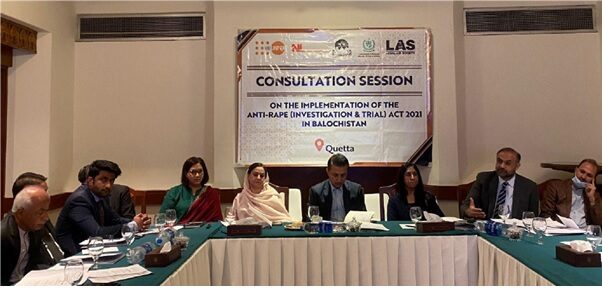Karachi, May 21, 2024: Universal Health Coverage promotes health for all. Sindh government through its public-private partnerships has been able to make significant strides towards it. Today, no child is more than 30 minutes away from quality emergency services.
Similarly, no one is more than 90 minutes away from quality heart care. This was stated by Dr. Ahson Rabbani, CEO – ChildLife Foundation while moderating a session on Universal Health Coverage at the Healthcare Expo & Conference 2024.
Since 2011, the Government of Sindh and ChildLife Foundation have fostered a public-private partnership to enable access to quality emergency care, free of cost for 6 million children across Sindh. Child health is our top priority, and our joint efforts have lowered the child mortality rate in Sindh.
The UNICEF-supported MICS survey of 2021 reported a major reduction in child mortality rate in Sindh – from 104 to 46 per 1,000 live births over five years. This partnership has also expanded ChildLife’s Telemedicine network to all tehsils of Sindh.
Universal Health Coverage (UHC) is a fundamental human right that ensures all individuals have access to quality health services without facing financial hardship. Collaborative efforts are crucial to increase access to quality healthcare services, reduce mortality rates, diminish financial burdens on individuals and households, enhance health equity, and strengthen the healthcare system and infrastructure. Together, these efforts promote health and well-being for all.
The session highlighted the critical role of public-private partnerships in providing access to Universal Health Coverage in Pakistan and was attended by healthcare professionals from various organizations.
Notable panelists stressed the importance of Universal Health Coverage and mentioned that achieving it in Pakistan requires a collaborative effort from all stakeholders. The government, private sector, civil society, and international organizations must work together to address the country’s significant health challenges.
Pakistan faces numerous health challenges, including a high burden of infectious and non-communicable diseases, resulting in high child mortality rates, inadequate health infrastructure, and a shortage of healthcare professionals. The country’s largely privatized healthcare system leads to significant out-of-pocket expenses for patients, causing financial hardship and pushing many individuals below the poverty line.
By expanding health coverage, increasing health financing, strengthening healthcare infrastructure, developing human resources, and implementing health insurance programs, Pakistan can make significant progress towards achieving Universal Health Coverage and ensuring that all citizens have access to quality health services without facing financial hardship.



























































































































































































































































































